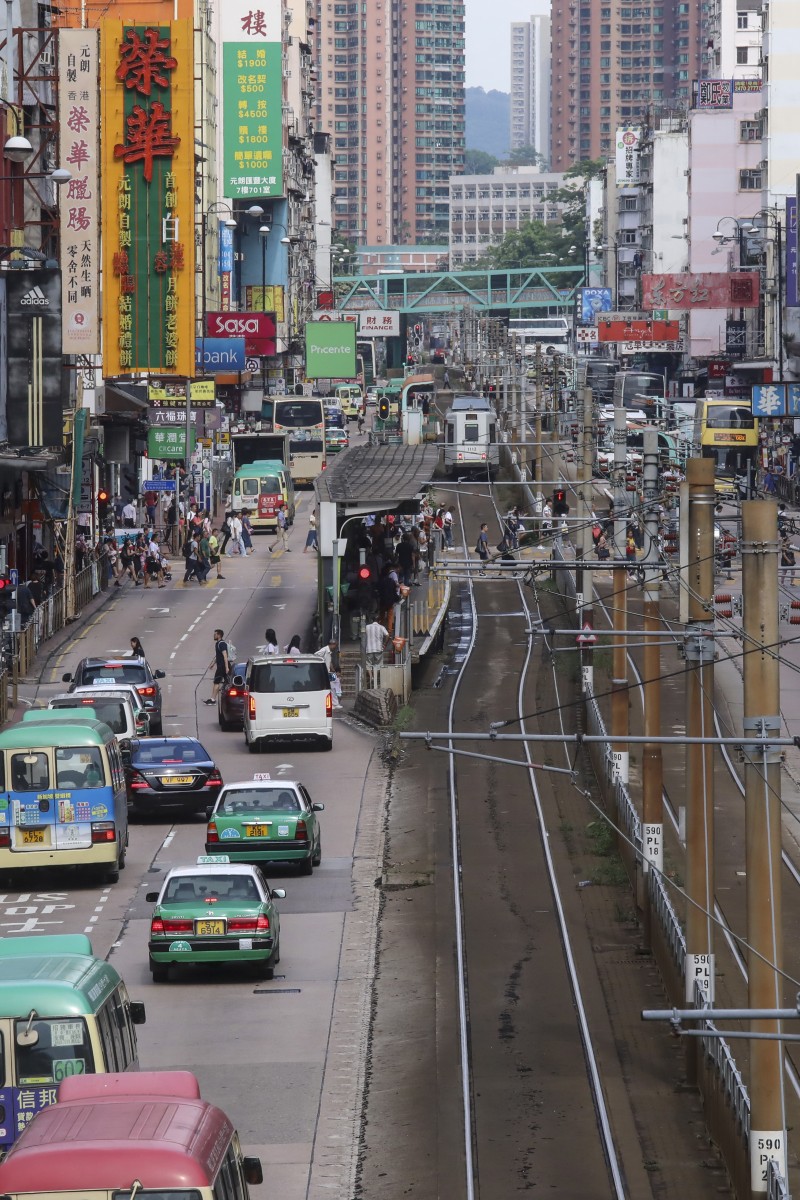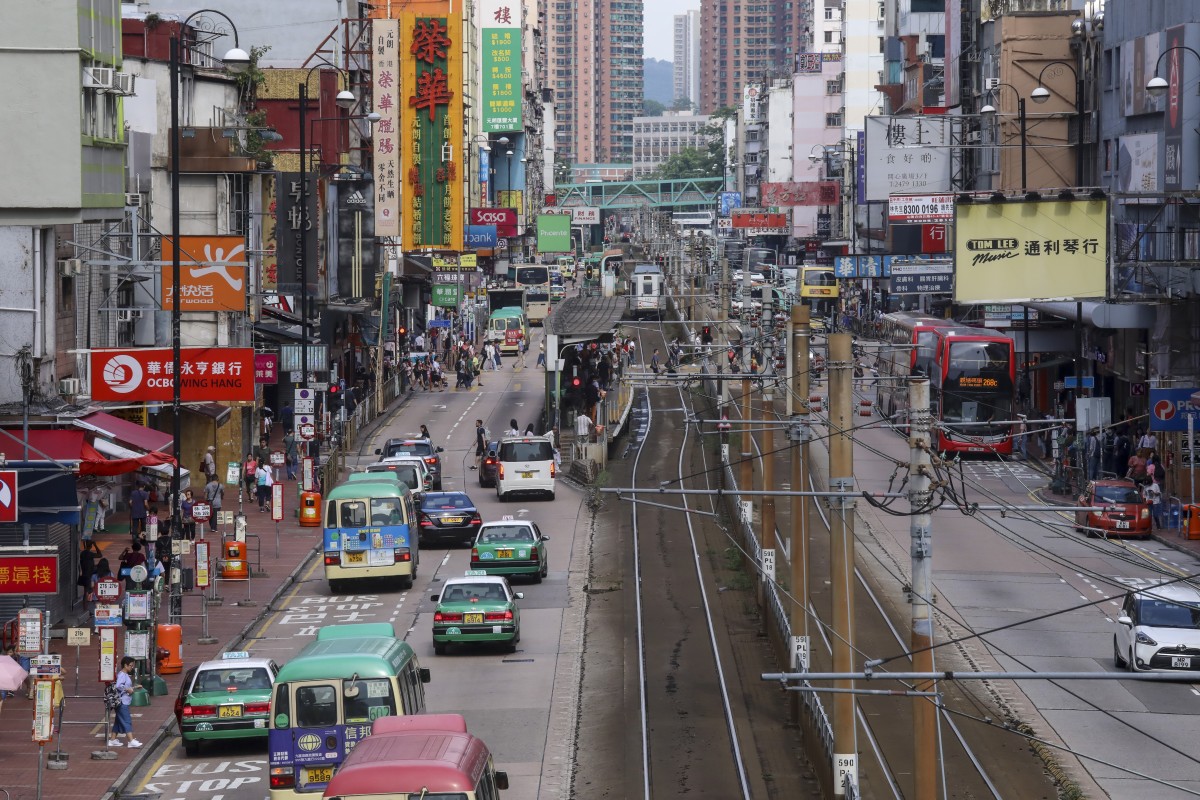
Hong Kong extradition bill: Police ban Yuen Long protest in aftermath of MTR station attack, but organisers say march will go on
Force got advice from rural leaders, but organiser says this only fuels suspicions that officers are colluding with them
 Yuen Long returns to business as usual, but anxiety still lingers over Sunday night’s attacks.
Yuen Long returns to business as usual, but anxiety still lingers over Sunday night’s attacks. Hong Kong police have decided to ban a protest march planned for Saturday in the tense northern town of Yuen Long in a rare move fuelled by fears of further violence, sparking accusations of “political” action by the force.
The Hong Kong Police Force has issued a letter of objection to Max Chung Kin-ping, one of the march’s organisers saying they have been denied permission for the march on grounds of public safety and order.
The letter states the path passes by several villages and ends at an MTR station, which was the site of a “violent incident” and the march would pose a danger to marchers, villagers and passers-by. It also cites the damage done to a lawmaker’s office and family graves, in addition to “radical calls online involving violence” as reasons for objecting to the proposed protest.
“Based on recent severe clashes after public gatherings and the social atmosphere, we have reason to believe the actions of participants will be beyond your control.” the letter read and also said Chung could appeal the decision.
Chung said the ban would only spark a larger turnout as people would be angered by the “political move” by police, who made the decision on advice from rural leaders.
Chung added he would still show up. “We will exhaust every means to march.”
The decision came after white-clad men, some of whom were suspected to be triad members, attacked MTR passengers and protesters returning from an earlier march in the city centre last Sunday.
On Sunday night, the mob’s target seemed to be demonstrators in black, who had marched against the now-suspended extradition bill, but the indiscriminate assaults led to at least 45 people injured, throwing a wave of anxiety over the rural district.
Twelve people have been arrested over the incident.
Saturday’s planned march was to condemn the horrifying violence that night, but community leaders and politicians warned of further chaos.
The refusal of a letter of no objection from the force only fuelled claims police were “cooperating” with rural powers, Chung said.
After the vicious attacks at Yuen Long MTR station, the embattled force also came under fire for showing up late to restore order and protect citizens.
Asked whether he was worried about marchers’ safety, Chung said police should know the march would go on and that officers should act accordingly.
Before the police announcement, leading developer Sun Hung Kai Properties had planned to step up safety measures in its malls near the railway station this weekend, while 13 members of the Yuen Long District Council issued a joint statement calling on villagers of Nam Pin Wai – said to be home to some attackers – and protesters to exercise self-restraint.
While rare, it was not the first time police had rejected an application for a rally.
In 2014, an application to hold a public meeting at Tim Mei Avenue on September 28 was turned down. Some 87 canisters of tear gas were fired that day to disperse crowds that still gathered at the site, and the chaos eventually triggered the 79-day pro-democracy Occupy movement.
The ongoing political crisis over the extradition bill has rocked the city for weeks as protesters and police clashed in running battles, spawning a worrying pattern of violence after peaceful marches.
The legislation would have allowed the transfer of fugitives to jurisdictions with which the city has no extradition deal, including mainland China.
